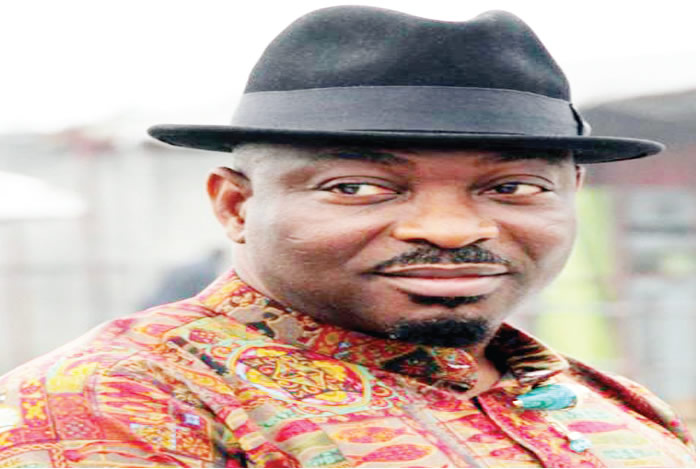Udengs Eradiri, the Labour Party’s governorship candidate in Bayelsa State during the 2023 elections, advocates for the Ijaw ethnic group and Bayelsa State to align with the ruling All Progressives Congress (APC). He argues that the Ijaws are currently marginalized in national politics, lacking representation at the highest levels of decision-making. Eradiri points to the recent dispute between Rivers State Governor Siminilayi Fubara and FCT Minister Nyesom Wike as an example of how Ijaw interests are sidelined. He criticizes the tendency to frame political disagreements as ethnic conflicts, highlighting the need for strategic political positioning to gain influence and resources. Eradiri believes that aligning with the APC offers the Ijaws a seat at the table where national resources are allocated, emphasizing the importance of having Ijaw leaders within the ruling party to advocate for their community’s interests.
Eradiri contends that Fubara’s defiance against Wike was an act of disloyalty and a demonstration of political inexperience. He emphasizes the importance of respecting established political structures and maintaining alliances, especially for a newly elected governor like Fubara who owes his position to Wike’s influence. Eradiri criticizes Bayelsa State Governor Douye Diri for supporting Fubara’s stance, accusing him of hypocrisy for respecting his own political benefactor while encouraging Fubara to disrespect his. He argues that the dispute between Fubara and Wike should have been handled internally within the PDP, but was unnecessarily escalated into an ethnic issue, detrimental to the interests of the Ijaw nation. Eradiri emphasizes the need for Ijaw leaders to prioritize the collective good over individual political squabbles.
Eradiri sees the current political landscape as devoid of a substantial opposition, citing his experience with the Labour Party, which he describes as lacking focus and driven by financial opportunism. He believes that the Ijaw people lack the economic and organizational capacity to effectively operate as a viable opposition force. He points to the All Progressives Grand Alliance (APGA) as an example of a party sustained by independent economic power within its region, a model he believes the Ijaws currently lack. Eradiri argues that the Ijaw people’s economic dependence on political patronage hinders their ability to build a strong independent political movement.
According to Eradiri, the Ijaws’ absence from key decision-making platforms leaves them vulnerable to political marginalization. He argues that while the Ijaws contribute significantly to the nation’s oil wealth, they lack the political leverage to ensure a fair share of the benefits. He contrasts this with the influence wielded by leaders from other regions, such as Wike and Senate President Godswill Akpabio, who can advocate effectively for their respective communities. Eradiri believes that joining the APC would provide the Ijaws with the necessary platform to participate in national discussions and secure a more equitable distribution of resources.
Eradiri dismisses concerns about creating a one-party system if Bayelsa and other states align with the APC. He argues that the current opposition parties are ineffective and that the focus should be on securing political representation within the ruling party. He criticizes the existing opposition parties for lacking genuine commitment and economic independence, highlighting their inability to challenge the APC effectively. Eradiri insists that given the current political realities, the Ijaws must prioritize securing a position of influence within the ruling party rather than attempting to build an independent opposition force.
Eradiri’s core argument centers on the pragmatic need for the Ijaws to gain political influence within the existing power structure. He believes that the current political climate necessitates strategic alliances and participation in the ruling party to secure the economic and political well-being of the Ijaw people. He emphasizes the importance of economic empowerment as a foundation for political strength and argues that without this, the Ijaws will remain marginalized and unable to effectively advocate for their interests. Eradiri urges Ijaw leaders to prioritize strategic political engagement over symbolic gestures and focus on building the economic and political capital needed to secure a prosperous future for their community.














